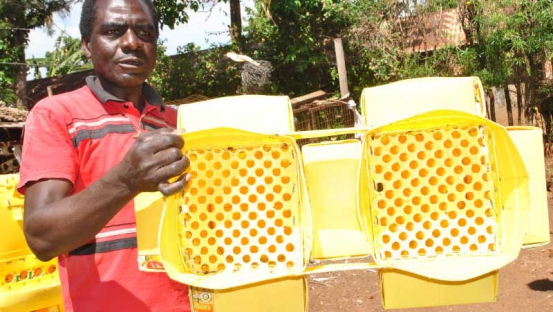×
The Standard e-Paper
Kenya’s Boldest Voice

While most people would dispose of jerrycans after using the oil in them or use them to store water, a farmer in Burumba, Busia County, has found a better use for them.
Cornelius Obonyo, a poultry farmer, uses the jerrycans to make plastic brooders.